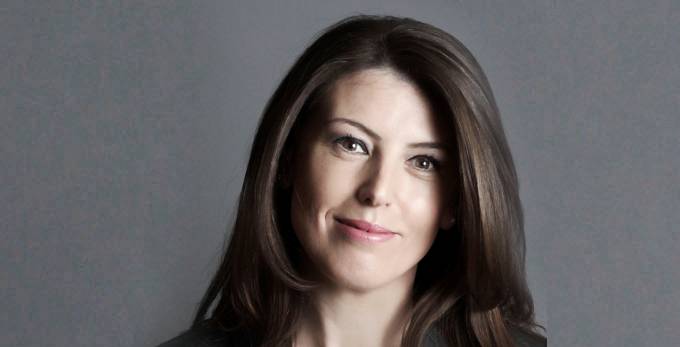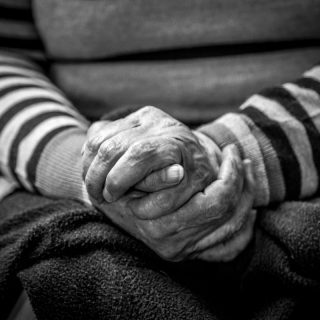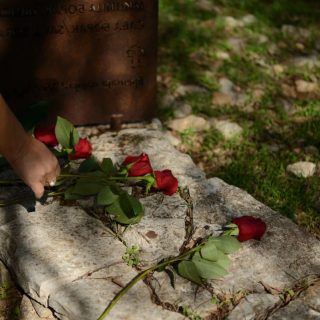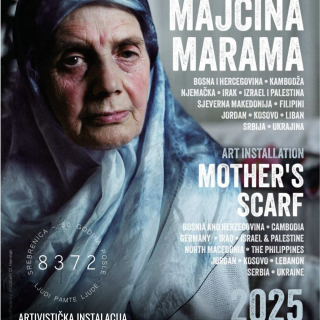Every year on March 24, on the anniversary of NATO bombing, both officials and the media in Kosovo remember the contribution of the military Alliance in “stopping the genocide and contributing to regional peace and security”.
While the NATO in Kosovo has become the longest peacekeeping mission in its history, the ‘threads of memory’ between both Serbian and Albanian communities are becoming equally long and divided.
Seven years before a memorial commemorating the 158 NATO soldiers who died while serving in Kosovo was built in the center of Prishtina in 2018, just 7 kilometers away in Graçanica a street was named “March 24”.
In Graçanica, March 24 is a short street and there Serbs like Brankica Kostic want to remember it as a “bad day for Serbs”. A few meters below, this year, on March 25, a cross was placed commemorating the Serbs who died during NATO airstrikes. More than the role of NATO in the freedom of Kosovo, the memorials commemorate the fallen soldiers. Before the memorial for the peacekeeping troops was built, the capital square, which like many others in the country was filled with figures of heroes and politicians, the Assembly was asked to build a memorial in gratitude of NATO.
After these calls, the NATO emblem sculpture was placed in Prizren.
Other monuments are much more modest. Most of them are in the form of carved stone plaques such as the plaque dedicated to the 42 Slovak soldiers in the city park in Prishtina or the plaque dedicated to the 14 British soldiers who died while serving with NATO in Kosovo.
But Albanians remember the victims who died from mistaken NATO strikes on civilians as victims of Serbia.
In Korishë, Prizren, where a NATO attack killed 77 civilians who were being used as human shields by Yugoslav forces on May 14, 1999, there is no anger for NATO.
The son and 3 other family members of Hasan Ahmetaj were among these victims, including 13 other relatives. He says that Serbia and not NATO killed his family members. “We built the memorial ourselves, for which there is no maintenance”, he says. “But we will forever remember them as victims of Serbia”.
Ahmetaj says that he regrets that there is still no memorial in gratitude of the North Atlantic Alliance. “Military intervention was a blessing and a strong stone to the international law. The loss of lives, however well-intentioned, is a painful process, but one that could not be avoided,” adds Ahmetaj.
Another memorial for 41 Kosovo Albanians in the village of Bishtazhin near Gjakova, also on May 14, 1999, does not mention that they were mistakenly killed by a NATO airstrike. Below the names it is written only that “Serbian beasts took the lives of dozens of civilians”.
If perimeter and dimensions are measured, in Serbia the memorials that express victimization are taller and more visible like the ‘Eternal Flame’ monument in Belgrade which commemorates the soldiers and civilians who were killed during the NATO bombings. Dr. Elisa Satjukow, lecturer on East and Southeast European History at the University of Leipzig in Germany, describes two phases of political memory. “The first is that of Slobodan Milosevič, who initiated a hegemonic narrative of Serbian martyrdom,” she says. “The other continues with the current president Aleksandar Vučić, former minister of information of the Milosevič government during the war in Kosovo, who qualifies it as a collective trauma of the Serbian society, while the war in Kosovo remains silent”.
In Belgrade, various unverified numbers of victims are cited, without specifying whether they were civilians or members of the armed forces.
A quarter of a century later, the memory of the NATO bombing is taking more and more place in the process of recognition and sensitivity for the unprecedented intervention carried out to stop the atrocities in the then Yugoslav province.
In Serbia, March 24 remains an event detached from the war crimes and ethnic cleansing committed by Serbian forces against Albanians in Kosovo, turning the bombing into the forefront of a restored nationalist calendar.
Serbeze Haxhiaj is an investigative journalist and news editor based in Pristina, Kosovo, who focuses on corruption, human rights, security issues, religious extremism, terrorism and war crimes. She is currently an editor at Radio Television of Kosovo and a journalist at the Balkan Investigative Reporting Network (BIRN).




